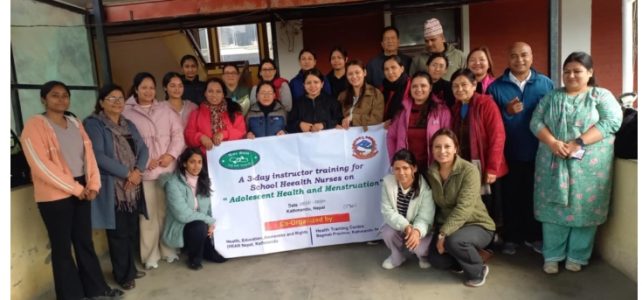In Nepal, thousands of people die of communicable diseases every year. The reasons for this are mainly contaminated water, poor hygiene and sanitation and malnutrition. Girls and women are especially at risk: they also suffer from the harmful health effects of traditions surrounding menstruation and early marriage.
Nepalese health experts of the NGO HEAR Nepal want to provide better health and education, especially in the rural areas, starting in the Western district of Bajhang.

The Khori Project
In our experience, true power cannot be given, it can only be taken. We therefore were ecstatic as we read about women taking their own power in their village and we discussed how the spirit of self-empowerment by the women in Khori could be spread to the women in other villages, motivating them to do the same. (Video below)
Read more
School Nurses Training Project
The success of our Girls’ and Women’s Project in Bajhang District, where our nurses taught 6th – 8th grade students in all 120 secondary schools about puberty, menstruation and MHM, gender equality and harassment, made us consider how to scale up our project and at the same time make it sustainable.
Read moreLow cost, HIGH impact.
Your donation makes it possible for villagers to get access to clean drinking water and for girls and women to gain dignity and improve their health.
Where we work

We have decided to conduct our projects as a model in the western district of Bajhang. Bajhang is one of the ten poorest and least developed of the 77 districts in Nepal. It has a population of approximately 195,000, almost all of them Hindus. The majority of the people are engaged in agriculture, followed by wage labor; but due to a lack of jobs, 30% of the male population of Bajhang works in border towns in India.

